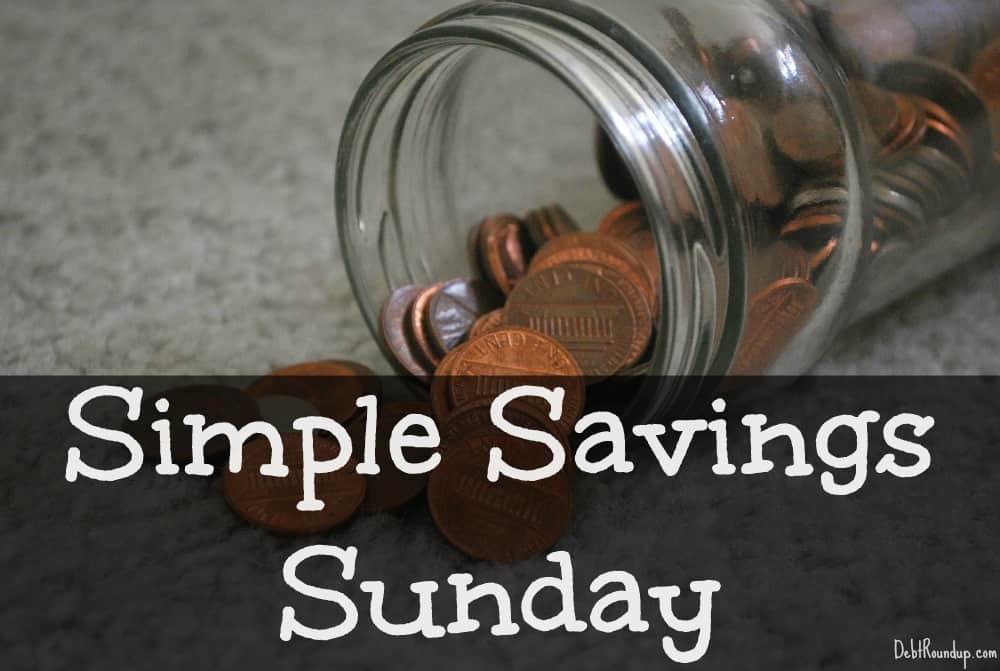Simple Savings Sunday – The Lowest Price Isn’t Always the Best Price
Welcome to another edition of Simple Savings Sunday! I love these little tidbits of savings advice as much as the next person. I really do! Today is going to be one that might confuse some of you and it’s about shopping for the lowest price.
Now, I’m not saying shopping for the “best” price, but the lowest. Isn’t the lowest price the best price? No, it’s not! Let me explain in today’s Simple Savings Sunday and hopefully you will agree with me. If not, I’m cool with that. I don’t get my feelings hurt easily. Today, we are going to see how the lowest price might not be the best option.
The Lowest Price Isn’t Always the Best Price
If you haven’t noticed, our online world has exploded with price comparison tools. We see them everywhere. I use them when I’m shopping on Amazon or any other store online. I want to make sure I can find the product at the best price. Over the years, I’ve realized that our quest for the lowest price is actually hurting us.
We want the best quality products, but many of us aren’t willing to pay the prices for them. I’m guilty of this. I’m frugal, but I also tend to be cheap on some products. This hurts me and doesn’t maximize my dollar. When you’re frugal, you want to maximize your dollar and get the best deal. Unfortunately, too many (I used to think this way) believe that the lowest price is the best price. I’m going to show you how that’s wrong.
We have an account at CIT and they make it really easy to earn good interest and they keep competitive with other banks. You can have an account setup in minutes and customer service is easy to deal with. With a low initial deposit, this is our favorite bank for saving money.
We need to think of prices as two-fold. Not only the amount of money we have to fork over for a product or service, but also the value we will receive out of said product/service. The lowest price means we are spending the least amount of money possible. This can be good in a number of ways. We are saving money getting the product we were looking for. That’s a win. The issue comes in when we have to sacrifice something for that low price.
Did you have to find a different store that carries the product? How was the service in that store? I’m not saying all low-price stores don’t provide the service and support of higher priced stores, but there are cases to be made. The biggest case in point is Walmart. If you’ve ever shopped there, you know their service is not really that good. They also never seem to have their checkout lanes manned properly. They have 20+ checkout lanes, but only have 4 open. How is that efficient?
What I’m trying to say is that at Walmart, you sacrifice service for a lower price. That may be OK for some (well, many), but I don’t really like that. I don’t shop much at Walmart because I feel it’s ridiculous to go in there and not get good service and have to stand in the checkout lane for a number of minutes. To me, the lowest price isn’t worth it. I would rather jump over to Target or another store, get the same product, pay a little more, and get good service and faster checkout. That’s the trade-off. That’s the value I’m getting. I feel I get the best price at Target over Walmart. Now, this is just an example. There are many more around.
You May Have to Sacrifice for the Lowest Price
I’ve spoken about my love of my Amazon Prime membership. I use it on a regular basis, not only for buying products, but also video streaming. I have the Amazon Fire TV Stick and watch a number of Amazon instant videos on it. Though I love Amazon, I know there may be cases where I’m not getting the lowest price. I’m OK with that. Why? Amazon makes up for the lowest price by providing excellent customer service, a streamlined shopping process, and fast shipping.
These are things I’m willing to pay for. Yes, I could go to another online retailer and pay a little less (maybe a dollar or two), but that could sacrifice the service and shipping I enjoy. Amazon maximizes the value of my dollar, so while I may not get the lowest price, I’m getting the best price for the value that comes along with it.
The same can be said about many other industries as well. When I was shopping for life insurance, I was using so many comparison engines to get life insurance quotes. It was a little daunting to say the least. My biggest issue was I was focusing on the lowest price per month for a term life plan. I wasn’t focusing on the actual company behind the quote or the process involved in getting an actual plan.
That’s where I made my mistake. I was on a quest to get the lowest price, but not the best price. I also need a good value for the money I spend, not just the lowest price I can find.
In the same article about our quest for the lowest price, I noted about shirts I used to buy from Kohl’s. They were quick-dry golf shirts. I do golf, but not much. These shirts are excellent for the summer time here in NC and they are nice enough for work. Now, for a long time I have been buying these shirts because of the price. They are the cheapest in town. The issue with them is they stain easily, tear in the washing machine, and just don’t hold up to the riggers of daily wear.
So, I was focusing just on the lowest price, but I’ve had to buy multiple shirts each year to replace the ones that didn’t make it. I wasn’t maximizing my money, I was wasting it. I wasn’t getting the best price, but just the lowest. Unfortunately, this was just costing me more money in the end. I could have paid $15 more per shirt and gotten a quality shirt that would have lasted for more than one season. This is what I’m doing now. I’m looking for the best price, which adds in the value I get out of the product/service and my overall experience. That’s why the lowest price may not be the best price!
Do you get what I’m saying here? What do you think about the lowest price not always being the best price?



Thanks, Grayson.
People quite often confuse being frugal with being cheap. Nothing could be further from the truth.
As you point out, the lowest price does not normally represent good “value”. Cheap stuff is often junk that actually ends up costing you more because it doesn’t do its job and/or it breaks. It’s also not enjoyable to use when you are using it.
Frugal shoppers look for “value”. It is their chief concern, in fact. The best value product may or may not be the least expensive one (it almost always is not, in fact). Frugal shoppers also recognize that saving money also frees up cash for the stuff that really matters in their lives.
Thanks for helping to get the message out, Grayson.
I agree with you Grayson. 2 years ago, I bought my daughter a tablet which I saw and bought online. I noticed that the online shop offered a great deal for that day, so I hurriedly purchased that tablet with a low price with discount too! Sadly, after 6 months, the tablet was not working anymore, it was too late that I realized that I should buy an expensive one.
I’ve been a victim of that Gray. I used to buy the cheapest or lowest price (those sale items) then later on I would find some glitched and return it. So imagine the time and money I wasted. So definitely, I learned that it’s not always good to buy the lowest price.
I don’t like to waste money, but quality is always important to me and works out cheaper in the long run. The key is to take care of what you buy so it lasts long. I am not a big online shopper but I hate it when I order something and it doesn’t look like the item I ordered online. So I am also very picky about websites I order from too.
We used to always buy at the dollar store for cleaning supplies. But we have learned that the more expensive name brand items usually last longer and save money in the long run.
Yep, I have seen that. It’s cheap, but you have to use twice as much to get the same cleaning effect as the other stuff.
We like to use a back of the envelope equation of cost per use. Depending on the purpose, cheap goods will often break and become useless, and therefore need to be replaced. Quality goods will last much longer, sometimes a lifetime. For example my wife loves to cook, so has a Le Creuset pot. Every meal cooked in this pot is a joy to cook and it’s much more likely to taste great than if cooked with a Walmart pot. Also, it will last more than one lifetime, so will be passed on to our daughter. Well worth the premium cost.
This is a great example of the core message of the post. Nice one Derek!